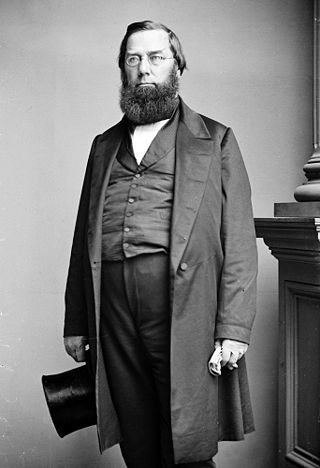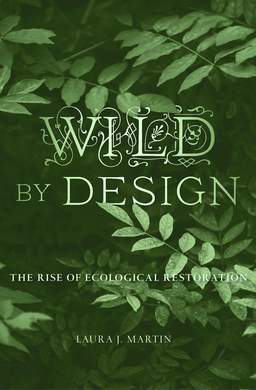Related Research Articles

The American Historical Association (AHA) is the oldest professional association of historians in the United States and the largest such organization in the world. Founded in 1884, AHA works to protect academic freedom, develop professional standards, and support scholarship and innovative teaching. It publishes The American Historical Review four times annually, which features scholarly history-related articles and book reviews.

George Perkins Marsh, an American diplomat and philologist, is considered by some to be America's first environmentalist and by recognizing the irreversible impact of man's actions on the earth, a precursor to the sustainability concept, although "conservationist" would be more accurate. The Marsh-Billings-Rockefeller National Historical Park in Vermont takes its name, in part, from Marsh. His 1864 book Man and Nature had a great impact in many parts of the world.

Man and Nature: Or, Physical Geography as Modified by Human Action, first published in 1864, was written by American polymath scholar and diplomat George Perkins Marsh. Marsh intended it to show that "whereas [others] think the earth made man, man in fact made the earth". As a result, he warned that man could destroy himself and the Earth if we don't restore and sustain global resources and raise awareness about our actions. It is one of the first works to document the effects of human action on the environment and it helped to launch the modern conservation movement.

William Cronon is an environmental historian and the Frederick Jackson Turner and Vilas Research Professor of History, Geography, and Environmental Studies at the University of Wisconsin–Madison. He was president of the American Historical Association (AHA) in 2012.
Donald Worster is an American environmental historian who was, until his retirement, the Hall Distinguished Professor of American History at the University of Kansas. He is one of the founders of, and leading figures in, the field of environmental history. In 2009, he was named to the American Academy of Arts and Sciences. After retirement from University of Kansas, he became Distinguished Foreign Expert and senior professor in the School of History of Renmin University of China.

The American Society for Environmental History (ASEH) is a professional society for the field of environmental history. The ASEH was founded in 1977 and its mission is to increase understanding of current environmental issues by analyzing their historical background. The ASEH promotes scholarship and teaching in environmental history, supports the professional needs of its members, and connects their work with larger communities. The organization's goals are to expand the understanding of the history of human interaction with the natural world, to foster dialogue with multiple disciplines and the public, and to support global environmental history that benefits the public and scholarly communities.
Thomas G. Andrews is an American historian.
The University of Washington Press is an American academic publishing house. The organization is a division of the University of Washington, based in Seattle. Although the division functions autonomously, it has worked to assist the university's efforts in support of the Burke Museum of Natural History and Culture, the Henry M. Jackson School of International Studies, and the Center for Innovation and Research in Graduate Education. Since 1915, it has published the works of first-time writers, including students, poets, and artists, along with authors known throughout the world for their work in the humanities, arts, and sciences.
Kate Brown is a Professor of Science, Technology and Society at Massachusetts Institute of Technology. She is the author of Manual for Survival: A Chernobyl Guide to the Future (2019), Dispatches from Dystopia (2015), Plutopia (2013), and A Biography of No Place (2004). She was a member of the faculty at the University of Maryland, Baltimore County (UMBC) from 2000 to 2018. She is the founding consulting editor of History Unclassified in the American Historical Review.

Plutopia: Nuclear Families, Atomic Cities, and the Great Soviet and American Plutonium Disasters is a 2013 book by American environmental historian Kate Brown. The book is a comparative history of the cities of Richland, in the northwest United States adjacent to the U.S. Department of Energy Hanford Site plutonium production area, and Ozersk, in Russia's southern Ural mountain region. These two cities were home to the world's first plutonium production sites, and in Plutopia Brown charts the environmental and social impacts of those sites on the residents of and the environment surrounding the two cities. Brown argues that the demands of plutonium production – both the danger of the physical process and the secrecy required in the Cold War context – led both US and Soviet officials to create "Plutopias," ideal communities to placate resident families in exchange for their cooperation and control over their bodies. This entailed creating significant state-run welfare programs along with high levels of consumerism in both places. However, each city witnessed what Brown terms "slow-motion disasters" via the slow, and usually controlled, release of high levels of radiation into their surrounding environments.
Michael D. Bess is Chancellor's Professor of History, as well as Professor of the Communication of Science and Technology, and Professor of European Studies, at Vanderbilt University, where he has been teaching since 1989. He is a specialist in twentieth- and twenty-first century Europe, with a particular interest in the interactions between social and cultural processes and technological change.
David Lowenthal was an American historian and geographer, renowned for his work on heritage. He is credited with having made heritage studies a discipline in its own right.
Nancy Langston is an American environmental historian, currently working as a professor in the Department of Social Sciences at Michigan Technological University. She was the President of the American Society of Environmental History from 2007 to 2009. Her initial research on the historical and spatial migrations of toxic contaminants within the Lake Superior basin was supported by the National Science Foundation, and has informed her most recent publication titled Toxic Bodies. Langston is a Marshall Scholar.
Matthew Cartmill is an American anthropologist and professor of anthropology in the College of Arts and Sciences at Boston University, where he formerly served as Chair of Anthropology.

Floating Coast: An Environmental History of the Bering Strait is a 2019 book by Brown University historian Bathsheba Demuth, published by W. W. Norton & Company. The book examines environmental and social change in the Beringia region surrounding the Bering Strait from the mid-nineteenth to the late-twentieth centuries, focusing on the pursuits of American and Russian interests and their interactions with local Chukchi, Iñupiat, and Yupik peoples. Those interests were largely focused on fauna such as bowhead whales, walruses, and reindeer, along with minerals, especially gold.
Bathsheba Rose Demuth is an environmental historian; she is the Dean’s Associate Professor of History and Environment and Society at Brown University. She specializes in the study of the Russian and North American Arctic. Her interest in this region was triggered when she moved north of the Arctic Circle in the Yukon, at the age of 18, and learned a wide range of survival skills in the taiga and tundra.

The Global Interior: Mineral Frontiers and American Power is a 2018 book by Megan Black, Associate Professor of History at MIT. The book documents the history of the U.S. Department of the Interior and its role in American imperialism.

Wild by Design: The Rise of Ecological Restoration is a 2022 book by Laura J. Martin, Associate Professor of Environmental Studies at Williams College. The book explains how ecological restoration became a global pursuit. Martin defines restoration as "an attempt to co-design nature with non-human collaborators." Wild by Design calls for the unification of ecological restoration and social justice.
Catherine McNeur is an associate professor of history at Portland State University. An environmental historian, she has focused on the nineteenth-century United States, urban public spaces, and the history of science.
References
- ↑ "American Society for Environmental History - Award Recipients". aseh.org. Retrieved 2020-11-12.